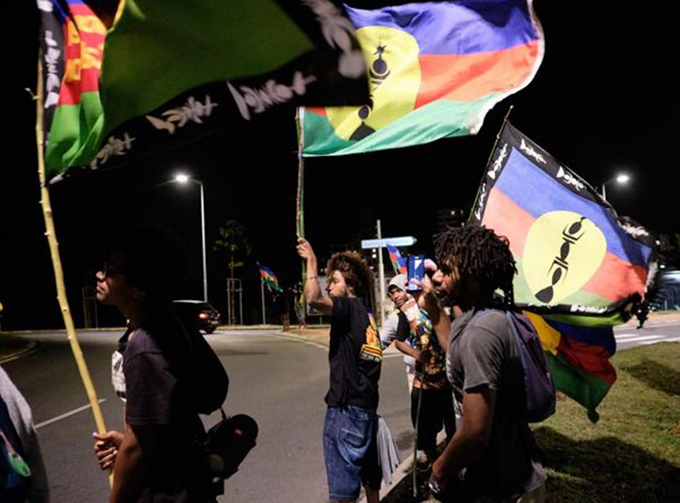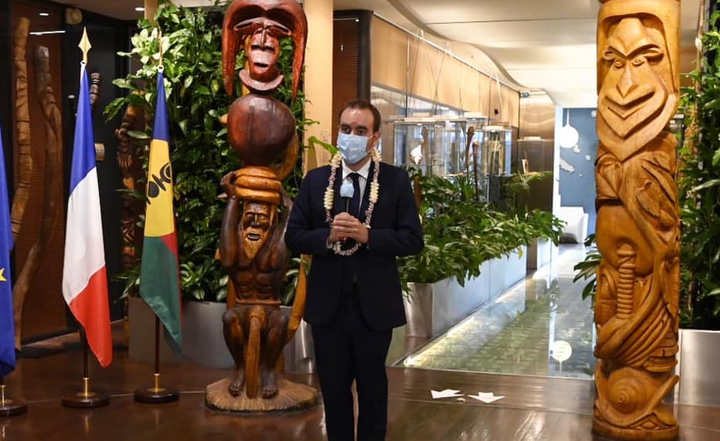
By RNZ Pacific
The Melanesian Spearhead Group says it will continue to support the Kanak people in their quest for independence from France despite the “non” result of last Sunday’s referendum in New Caledonia.
On Sunday, more than 53 percent of voters opted for the status quo, but the overall vote opting for independence was higher than in the last referendum in 2018.
George Hoa’au, acting director-general of the Melanesia Spearhead Group Secretariat in Port Vila, sought to reassure the Kanak people that the sub-regional group stood in solidarity with them.
“The collective visions by the founding Leaders of the newly Independent Melanesian States, which led to the establishment of the Melanesian Spearhead Group was partly a response on the need to liberate Melanesians from colonialism,” Hoa’au said.
Sunday’s referendum on independence from France was the second in a series of three possible referendums agreed to in the Noumea Accord which was signed in 1998.
The first referendum for self-determination was held in November 2018 and the third referendum, which Kanak politicians are expected to call, would most likely be held in 2022.
Minister’s visit essential
Meanwhile, the planned visit of the French Overseas Minister to New Caledonia is being described as essential to restart a dialogue between the rival camps.
The Caledonia Together Party said Sebastien Lecornu needed to get a measure of New Caledonia’s complexity and get it out of what it described as its “referendum rut”.
The new French government installed in July showed little interest in the referendum, with Caledonia Together accusing Paris of having been “deafeningly silent”.
The party said a dialogue was not an option but an obligation as the pro-independence side was poised to call a third referendum after losing last Sunday and two years ago.
Caledonia Together, which fell out with the other groups in the pro-French camp, had been calling for sovereignty to be combined with being part of the French republic.
Lecornu is due later this week and will stay for three weeks, including the first two in quarantine.
This article is republished by the Pacific Media Centre under a partnership agreement with RNZ.















































